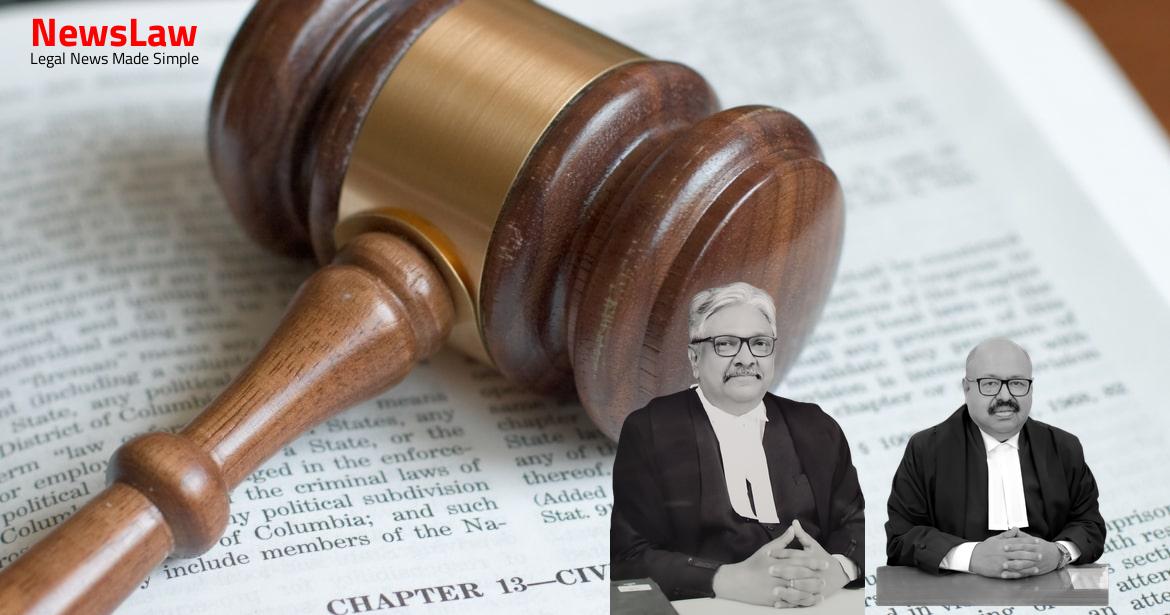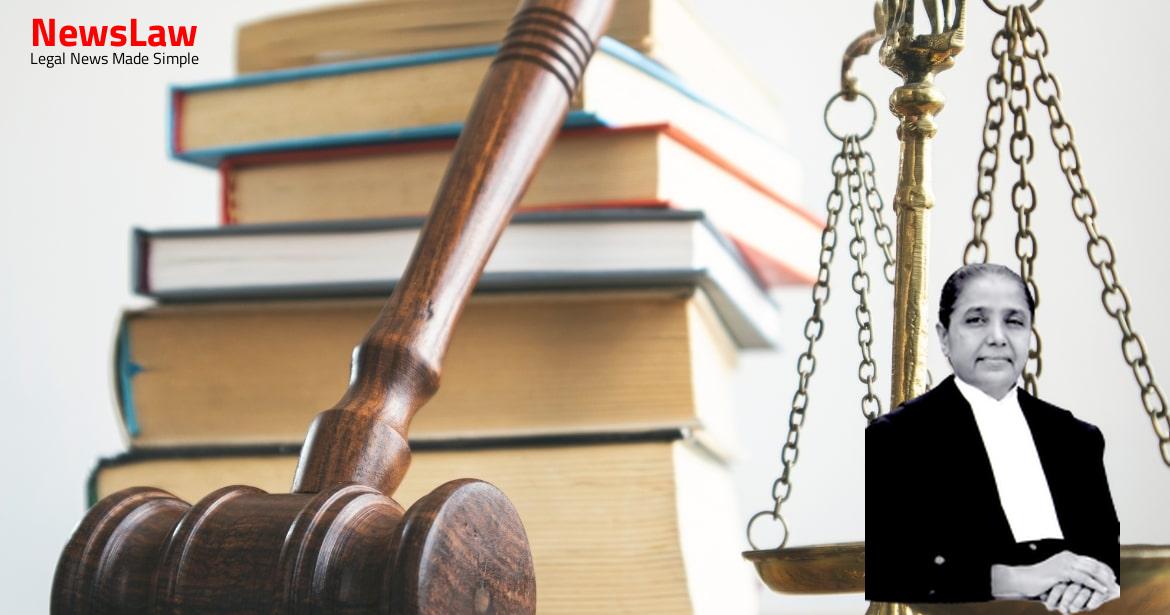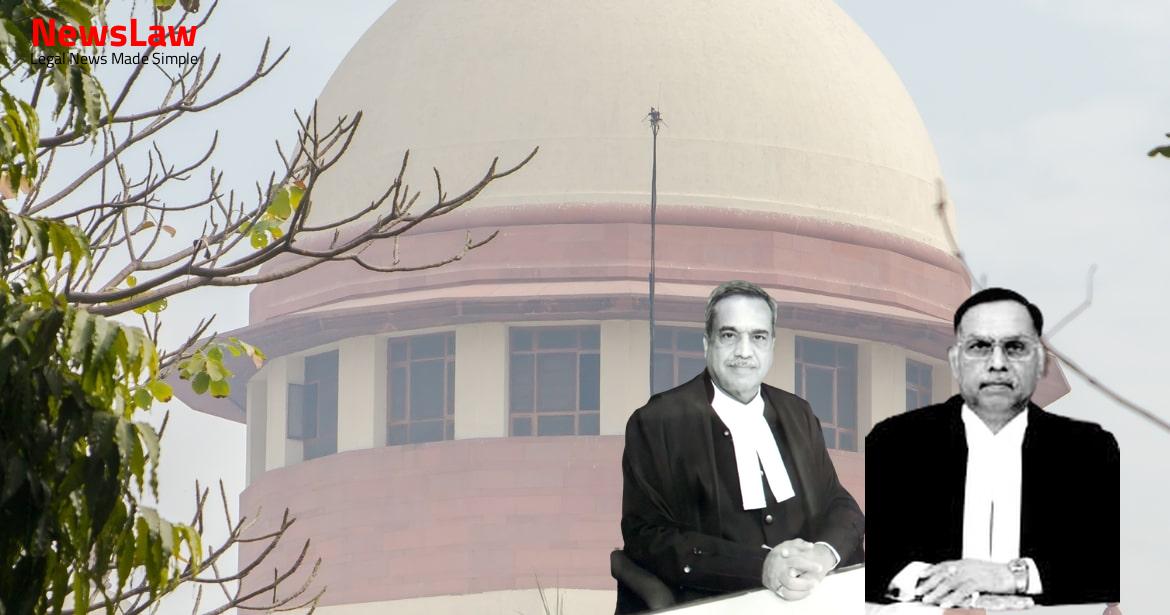Explore the nuanced legal analysis in a recent court judgment focusing on the presumption of debt in a Negotiable Instruments Act case. The court’s emphasis on legal presumptions, fair trial procedures, and the burden of proof provides valuable insights into the complexities of criminal proceedings. Stay tuned for a detailed look at the court’s reasoning and the implications of this important legal precedent.
Facts
- The challenge is against the judgment and order in Crl. M.C. No.414/2019 and Crl.M.A.No.1754/2019
- Delhi High Court dismissed the application under Section 482 of Cr.P.C for quashing of summoning order and notice framing order
- Orders were issued against the appellant under Section 138 of the Negotiable Instruments Act, 1881
- Criminal complaint was filed by Satish Gupta (respondent no.2)
Also Read: Insurance Claim Repudiation due to Fire Incident: Court’s Legal Analysis
Issue
- The issue at hand is whether summons and trial notice should have been quashed based on factual defenses.
Arguments
- The appellant argues that the essential ingredients for the offence under Section 138 of the N.I. Act were not satisfied, as the dishonoured cheques were contingent/security cheques for buyback of shares of the appellant’s company.
- The appellant contends that the cheques could not have been prematurely presented to the bank and should have been presented for encashment only after the transfer of the complainant’s shareholding.
- The complainant argues that when cheques are issued and the signatures are admitted, the presumption of a legally enforceable debt arises in favor of the holder.
- It is mentioned that the legal presumption under Section 118 of the N.I. Act must be raised against the accused when the cheque is dishonoured, and it is the accused’s responsibility to rebut this presumption with evidence during the trial.
- The respondent contended that in share purchase transactions, consideration is first paid to the seller before completing formalities for share transfer.
- The respondent relies on Section 56(1) of the Companies Act, 2013 and Form SH-4 for transfer of securities.
- There were transactions where the complainant invested in the appellant’s company.
- A dispute arose, and they agreed to return the invested money and transfer shares proportionately.
- The appellant issued cheques which were dishonored due to insufficient funds, leading to a complaint under Section 138 of the N.I. Act.
- The appellant claims the cheques were issued as ‘security’ and not in discharge of a legally recoverable debt.
Analysis
- Section 139 of the Act includes the existence of a legally enforceable debt or liability in the presumption.
- The power to quash a criminal proceeding should be used sparingly and only in rare cases.
- The court should not assess the reliability or genuineness of the allegations in the FIR or complaint when exercising the power to quash.
- The High Court should not use its powers under Section 482 Cr.P.C. to negate the complainant’s case without allowing the presentation of evidence.
- The Court should be fully convinced that the materials produced are of high quality and completely rule out the charges before quashing the criminal proceedings.
- A pre-trial stage is not suitable for quashing a complaint when the factual controversy is still possible.
- The burden of proving the absence of an existing debt or liability lies with the accused and should be discharged during the trial.
- The parameters for invoking the inherent jurisdiction of the Court to quash criminal proceedings have been outlined in the State of Haryana v. Bhajan Lal case and should be followed.
- The Court emphasizes the importance of not prematurely quashing a case before trial and disregarding legal presumptions supporting the complaint.
- Legal presumption should be given due weightage, and the trial court should be allowed to evaluate evidence before a decision to quash is made.
- The burden of proving no existing debt or liability lies on the accused, and a detailed enquiry on contested facts should be reserved for the trial court.
- The Court reiterates that quashing proceedings should not delve into the merits of factual disputes conclusively vindicating either party before trial.
- Scuttling the criminal process before trial can have grave and irreparable consequences, as parties must be given the opportunity to adduce evidence during the trial.
- The appellant must get a fair opportunity to adduce evidence in an open trial by an impartial judge.
- The judge should be able to dispassionately weigh the material to reach the truth of the matter.
- The observation made in the judgment is only for the limited purpose of the order.
- The observations should not influence the trial court’s decision on the merit of the case.
- The impugned judgment applied correct legal principles, and the High Court rightly declined relief to the accused in the quashing proceeding.
- The quote from Harry Brown emphasizes the importance of a fair trial with proper adherence to rules of evidence, competent counsel for the accused, and enforcement of courtroom procedures where every assumption can be challenged.
Decision
- The appeals are dismissed.
- The parties must bear their own costs.
Case Title: RATHISH BABU UNNIKRISHNAN Vs. THE STATE GOVT OF NCT OF DELHI (2022 INSC 480)
Case Number: Crl.A. No.-000694-000695 / 2022



